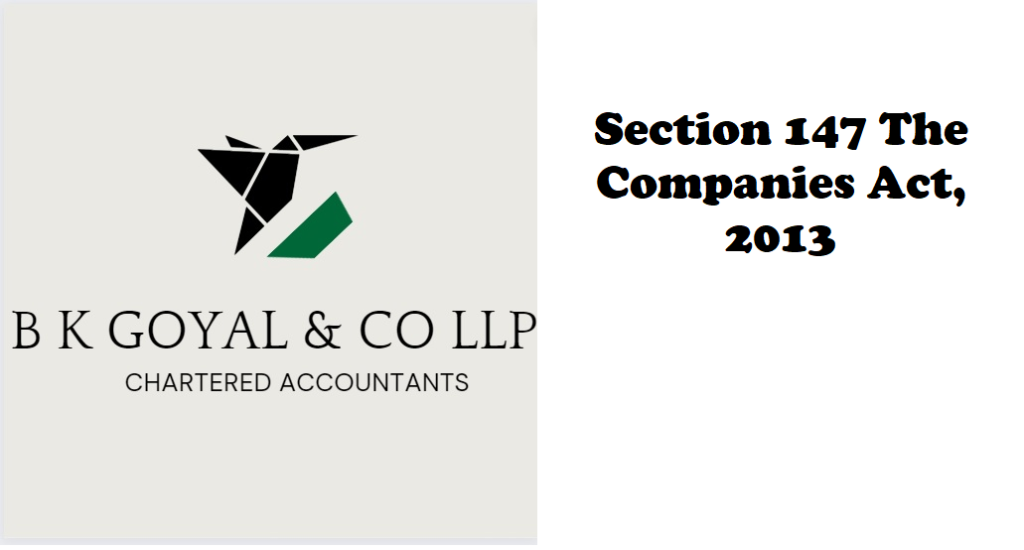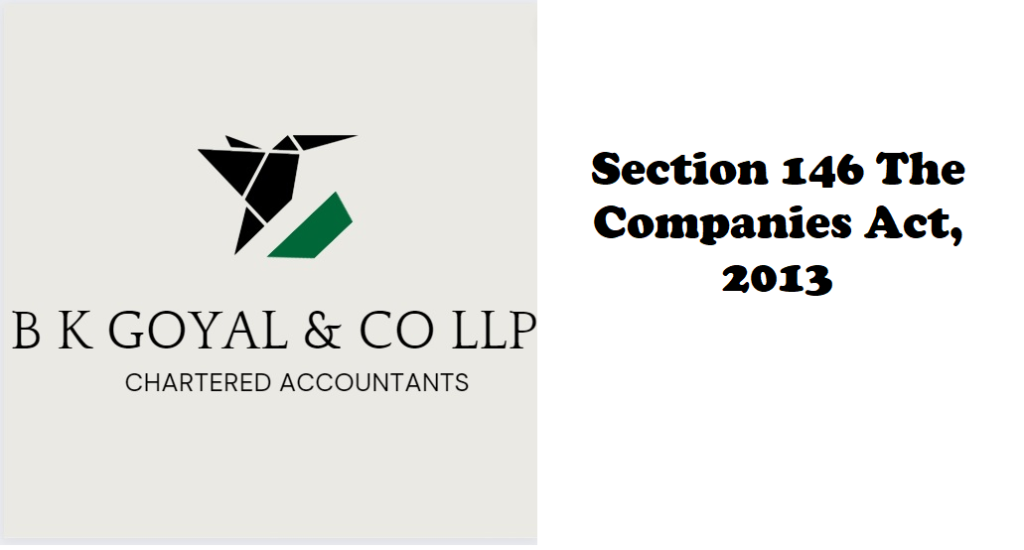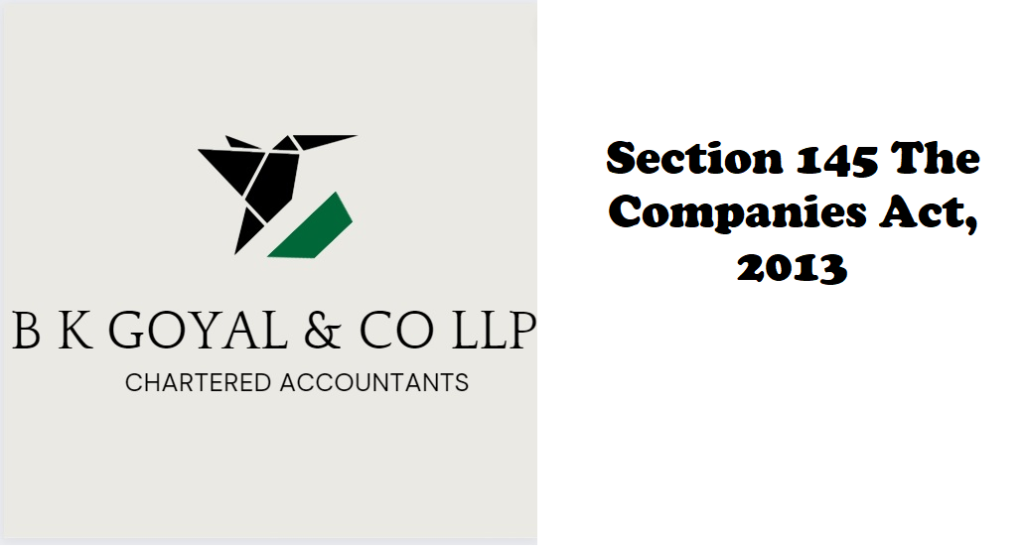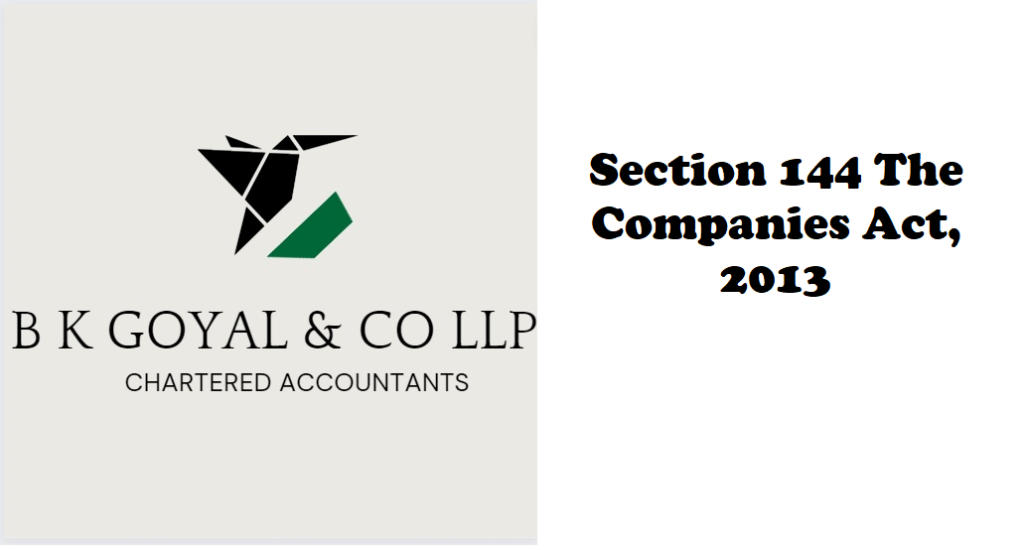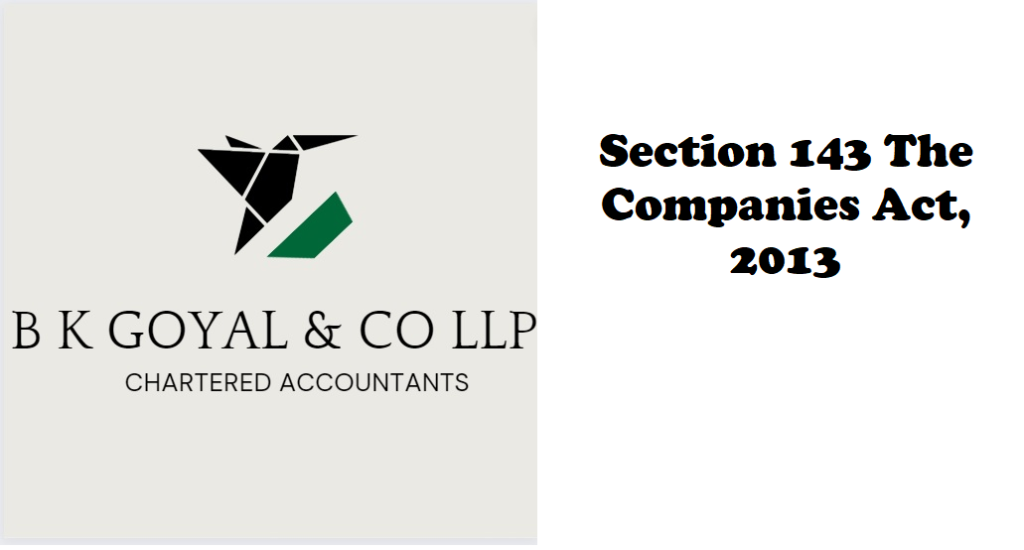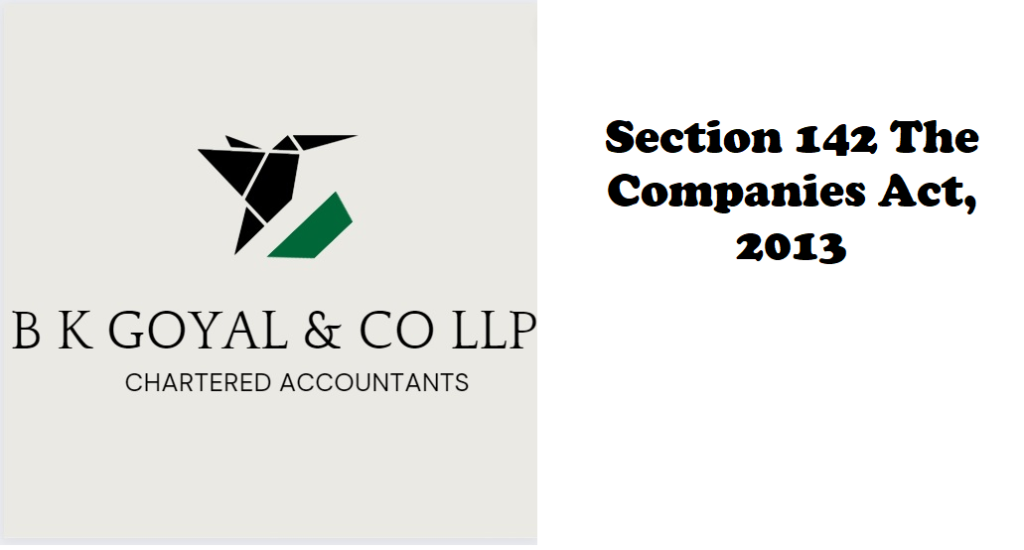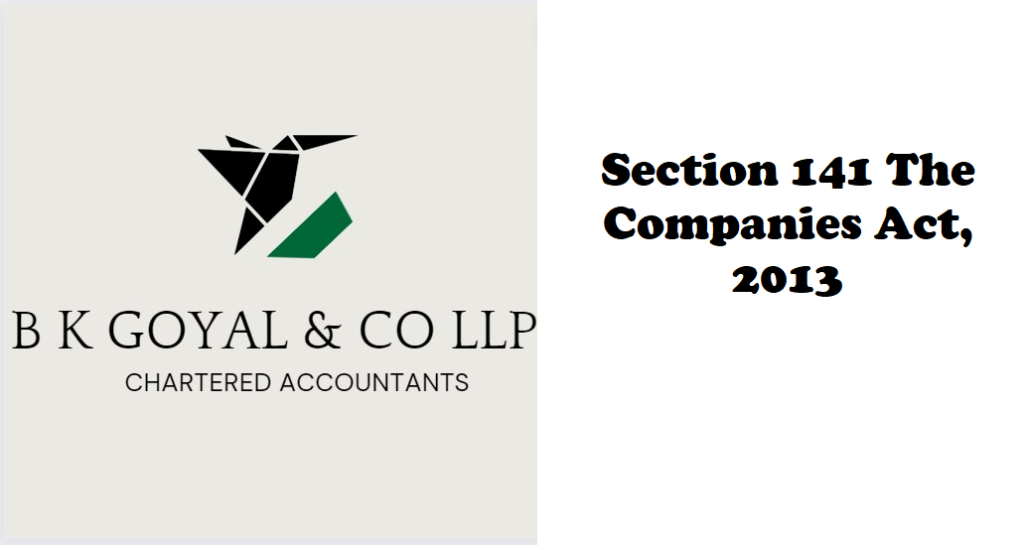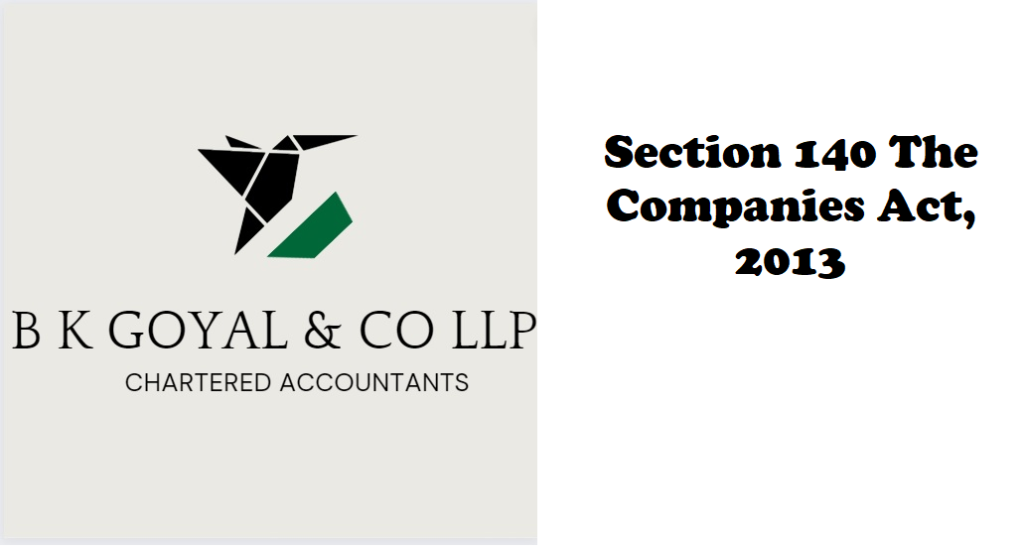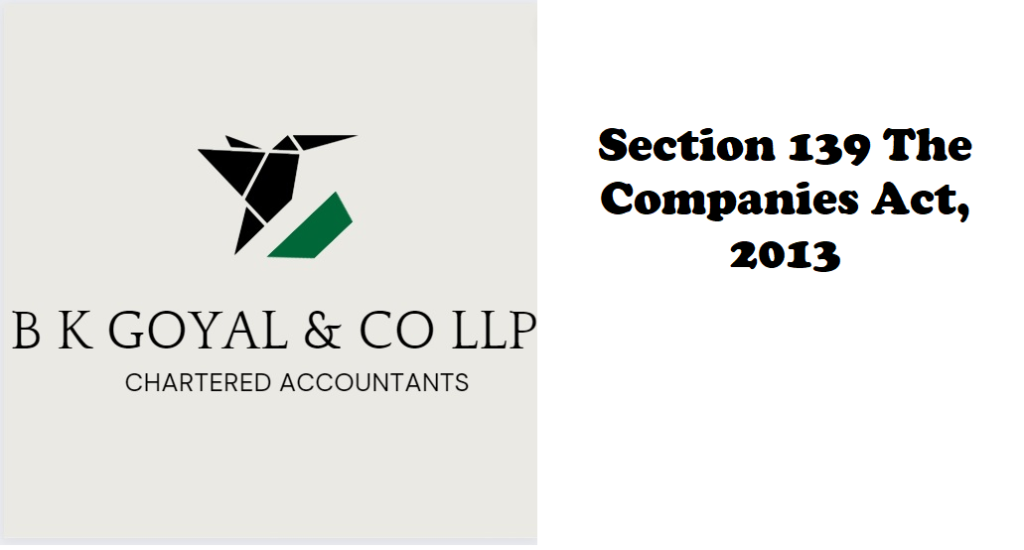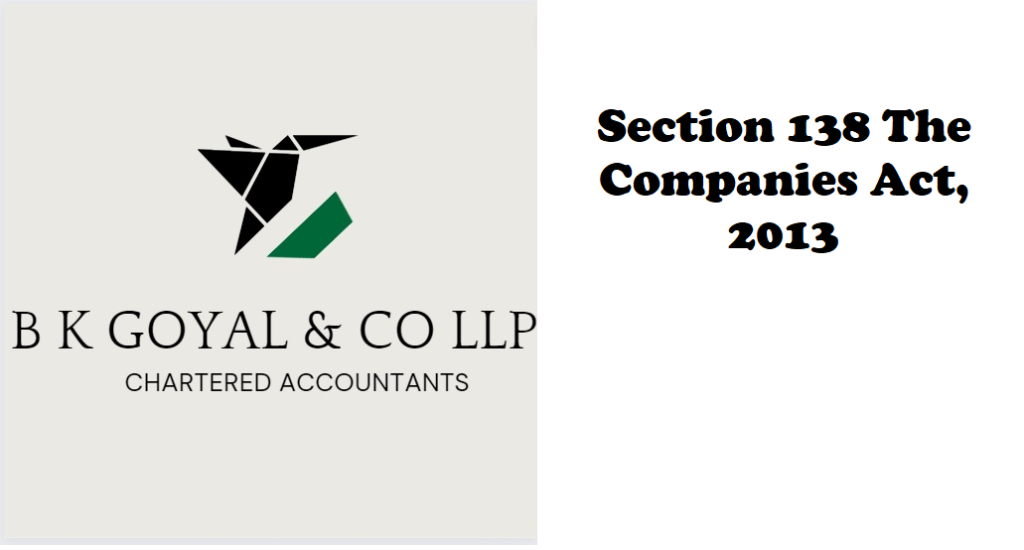Section 147 The Companies Act, 2013
Punishment for contravention (1) If any of the provisions of sections 139 to 146 (both inclusive) is contravened, the company shall be punishable with fine which shall not be less than twenty-five thousand rupees but which may extend to five lakh rupees and every officer of the company who is in default shall be punishable 5[Omitted] with fine which shall not be less than ten thousand rupees but which may extend to 6[one lakh rupees]. (2) If an auditor of a company contravenes any of the provisions of section 139, 7[Omitted], section 144 or section 145, the auditor shall be punishable with fine which shall not be less than twenty-five thousand rupees but which may extend to five lakh rupees 1[or four times the remuneration of the auditor, whichever is less] Provided that if an auditor has contravened such provisions knowingly or wilfully with the intention to deceive the company or its shareholders or creditors or tax authorities, he shall be punishable with imprisonment for a term which may extend to one year and 2[with fine which shall not be less than fifty thousand rupees but which may extend to twenty-five lakh rupees or eight times the remuneration of the auditor, whichever is less] (3) Where an auditor has been convicted under sub-section (2), he shall be liable to— (i) refund the remuneration received by him to the company; and (ii) pay for damages to the company, statutory bodies or authorities 3[or to members or creditors of the company] for loss arising out of incorrect or misleading statements of particulars made in his audit report. (4) The Central Government shall, by notification, specify any statutory body or authority or an officer for ensuring prompt payment of damages to the company or the persons under clause (ii) of sub-section (3) and such body, authority or officer shall after payment of damages to such company or persons file a report with the Central Government in respect of making such damages in such manner as may be specified in the said notification. (5) Where, in case of audit of a company being conducted by an audit firm, it is proved that the partner or partners of the audit firm has or have acted in a fraudulent manner or abetted or colluded in any fraud by, or in relation to or by, the company or its Directors or officers, the liability, whether civil or criminal as provided in this Act or in any other law for the time being in force, for such act shall be of the partner or partners concerned of the audit firm and of the firm jointly and severally *4[“Provided that in case of criminal liability of an audit firm, in respect of liability other than fine, the concerned partner or partners, who acted in a fraudulent manner or abetted or, as the case may be, colluded in any fraud shall only be liable.”] Amendment 1.Inserted by The Companies (Amendment)Act,2017 :- Amendment effective from 9th february 2018 2.Substituted by the Companies (Amendment) Act,2017 :- Amendment effective from 9th february 2018 In section 147, sub-section (2), in the proviso, for the words:- and with fine which shall not be less than one lakh rupees but which may extend to twenty-five lakh rupees the following Clause shall be substituted, namely :- and with fine which shall not be less than fifty thousand rupees but which may extend to twenty-five lakh rupees or eight times the remuneration of the auditor, whichever is less 3.Substituted by the Companies (Amendment) Act,2017 :- Amendment effective from 9th february 2018 in sub-section (3), in clause (ii), for the words or to any other persons the following Words shall be substituted, namely :- or to members or creditors of the company 4.Inserted by The Companies (Amendment)Act,2017 5.Omitted by the Companies (Amendment) Act, 2020. Notification dated 28th September, 2020 Amendment Effective from 21st December 2020 Original Omitted Content with imprisonment for a term which may extend to one year or 6.Substituted by the Companies (Amendment) Act, 2020. Notification dated 28th September, 2020 Amendment Effective from 21st December 2020 in sub section 1,for the words one lakh rupees,or with both the following shall be substituted namely one lakh rupees 7. Omitted by the Companies (Amendment) Act, 2020. Notification dated 28th September, 2020 Amendment Effective from 21st December 2020 Original Omitted Content section 143 Notes * Proviso of sub section (5) has been notified as on 9th February 2018 Practice area’s of B K Goyal & Co LLP Income Tax Return Filing | Income Tax Appeal | Income Tax Notice | GST Registration | GST Return Filing | FSSAI Registration | Company Registration | Company Audit | Company Annual Compliance | Income Tax Audit | Nidhi Company Registration| LLP Registration | Accounting in India | NGO Registration | NGO Audit | ESG | BRSR | Private Security Agency | Udyam Registration | Trademark Registration | Copyright Registration | Patent Registration | Import Export Code | Forensic Accounting and Fraud Detection | Section 8 Company | Foreign Company | 80G and 12A Certificate | FCRA Registration |DGGI Cases | Scrutiny Cases | Income Escapement Cases | Search & Seizure | CIT Appeal | ITAT Appeal | Auditors | Internal Audit | Financial Audit | Process Audit | IEC Code | CA Certification | Income Tax Penalty Notice u/s 271(1)(c) | Income Tax Notice u/s 142(1) | Income Tax Notice u/s 144 |Income Tax Notice u/s 148 | Income Tax Demand Notice Company Registration Services in major cities of India Company Registration in Jaipur | Company Registration in Delhi | Company Registration in Pune | Company Registration in Hyderabad | Company Registration in Bangalore | Company Registration in Chennai | Company Registration in Kolkata | Company Registration in Mumbai | Company Registration in India | Company Registration in Gurgaon Our Offices CA in Delhi | CA in Jaipur | CA in Gurgaon | CA Firm in India
Section 147 The Companies Act, 2013 Read More »
